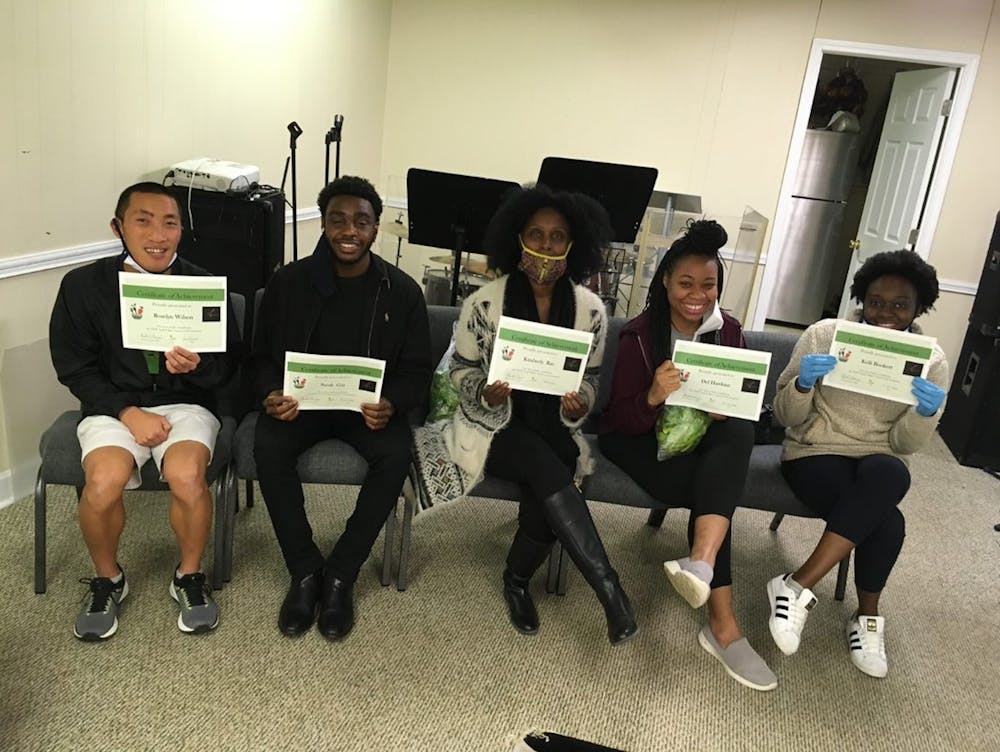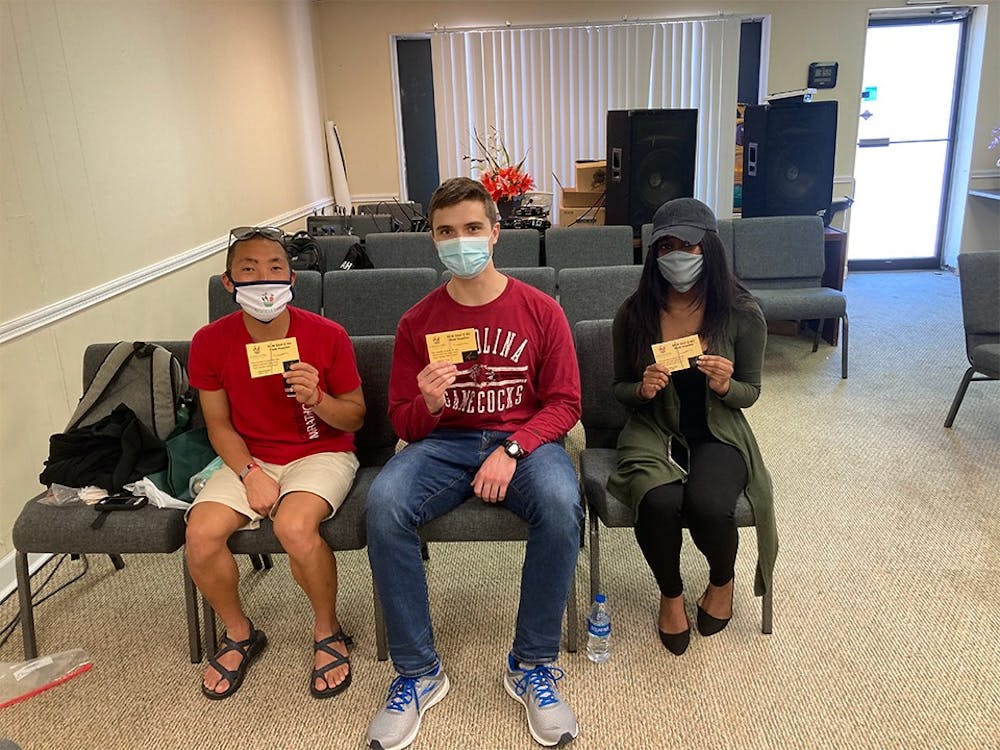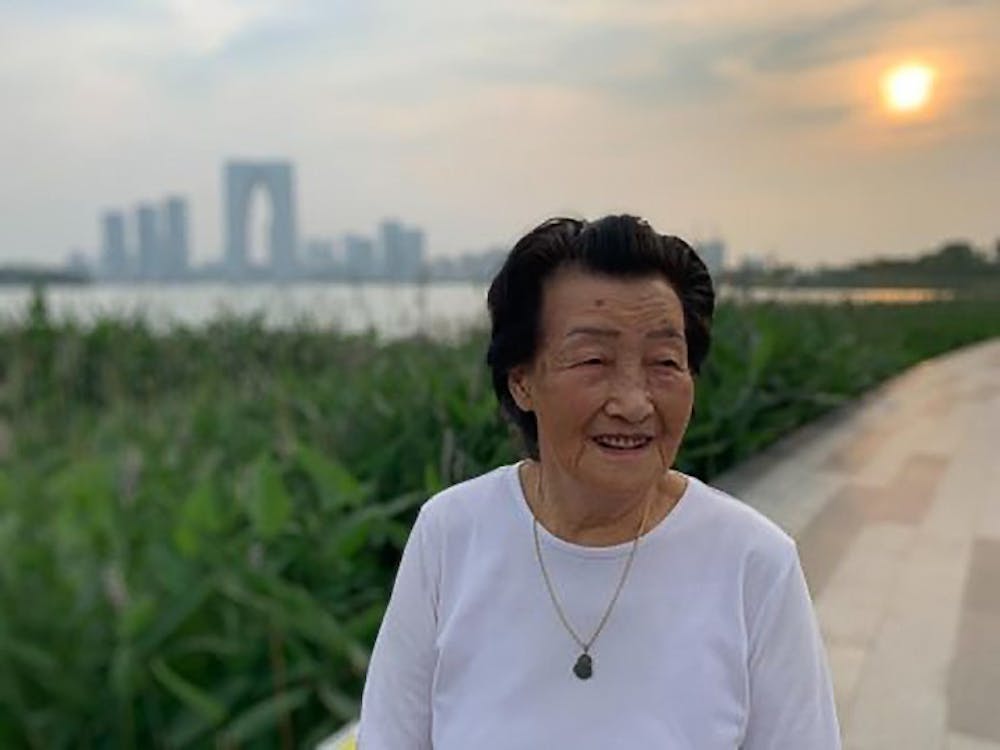Third-year Honors student Andrew Chen was born in Greenville, South Carolina, but spent his middle and high school years living with his family and grandmother in China. Now, for his senior thesis, he's documenting his grandmother's stories as a midwife in rural China.
Through the Honors College senior thesis, upperclassmen such as Chen can create a research project where they highlight unique aspects of their education and personal identity.
Chen said he combined his interests in public health, social sciences and “traditional pre-med stuff” to create his major, interdisciplinary studies in bio-social health. His thesis, called “The Oral History of My Grandmother,” is inspired by the stories his grandmother told him of her time as an informal medical practitioner in China.
“It's a critical medical anthropology paper, about birth and cultures and practices in China,” Chen said. “It's very personally engaging because I get to document the stories of my family, and my grandma in particular, especially for a day when, you know, she might not be around anymore.”

Chen’s plan is to collect six to 10 hours of interviews with his grandmother, translate them into English and present them in a website alongside pictures, with some of his writing and reflections on her. The 12-hour time difference between China and the U.S. is one of his challenges, he said.
Now that he is older, Chen’s grandmother is open to sharing more about her past with him, such as the fact that she gave birth to three of her children completely unassisted.
This project has shown him the importance of hearing our ancestors’ stories.
“Who knows, maybe in 100 years or whatever, someone will pull out these recordings,” Chen said. “And it'll be just such a valuable resource.”

Chen describes his thesis as a vignette of his grandmother. He said he wants to encourage people to ask their elderly family members for stories, even if they aren’t recorded.
Savannah Allen, a third-year biological sciences Honors student and Chen's friend, emphasized how much his grandmother’s experiences influenced him.
“He’s just super interested about promoting that and bringing awareness to it in the U.S., especially when it comes to taking a social and cultural perspective of medicine,” Allen said.
Chen’s thesis also emphasizes the importance of qualitative data, he said.
“It's so valuable to remember that qualitative data has a huge place in everything, whether it be like, shaping medicine or just understanding our past,” Chen said.
The Honors thesis is an opportunity for students to draw from their personal lives and turn it into valuable research.
Evan Robinette, a fourth-year exercise science student, is another Honors student working on his senior thesis. His thesis is titled, “Examining the Effects of Vegan Diet on Osteoarthritis Pain Levels.”
Robinette said he struggles with osteoarthritis. He experimented on himself with a vegan diet to alleviate his symptoms before starting his thesis.
“I pretty strictly followed a vegan diet for five to six months,” Robinette said. “I did notice a change in my symptoms."

Robinette conducts his research through NEW Soul, a community intervention study run by the Arnold School of Public Health, examining the effects of a vegan diet on weight in the Columbia African American community, specifically the psychological links between overeating and stress. His personal angle on the study is osteoarthritis.
The participants meet weekly for classes and form a tight bond with each other and the community leaders, according to Robinette.
“That, in my opinion, is the strongest component of getting these people to adhere to the diet and stick with it,” Robinette said. “It's the communal and supportive aspect of it.”
Robinette used a scale for measuring the participants’ osteoarthritis symptoms. It included their "pain, symptoms, activities of daily living, sport and recreation and quality of life."

“On average, all of the participants, from zero months to three months, experienced an improvement in all five of those categories” while on a vegan diet, Robinette said.
Hearing the testimonies from the study’s participants has been rewarding, Robinette said.
“I’ve just heard some really incredible stories about people who previously felt like they had lost hope, a little bit, in their own health status, or their ability to ambulate or move,” Robinette said.
Clarification (April 8, 2021, at 6:12 p.m.): The captions of the pictures of the NEW Soul research team were updated to add context to the photos.

